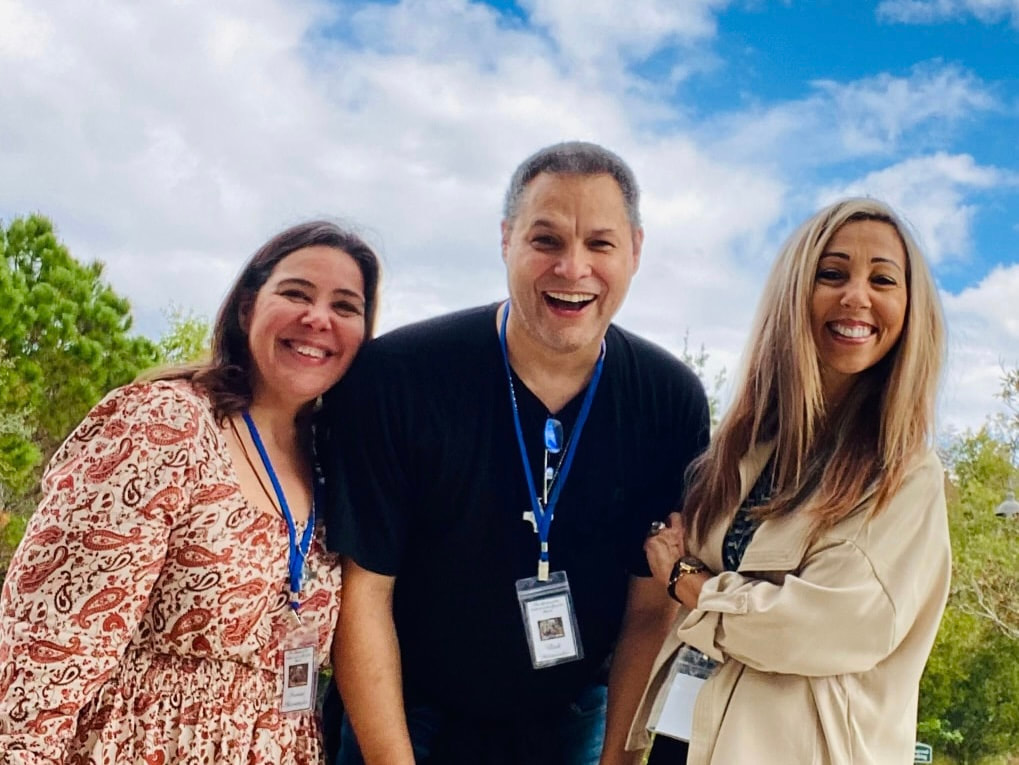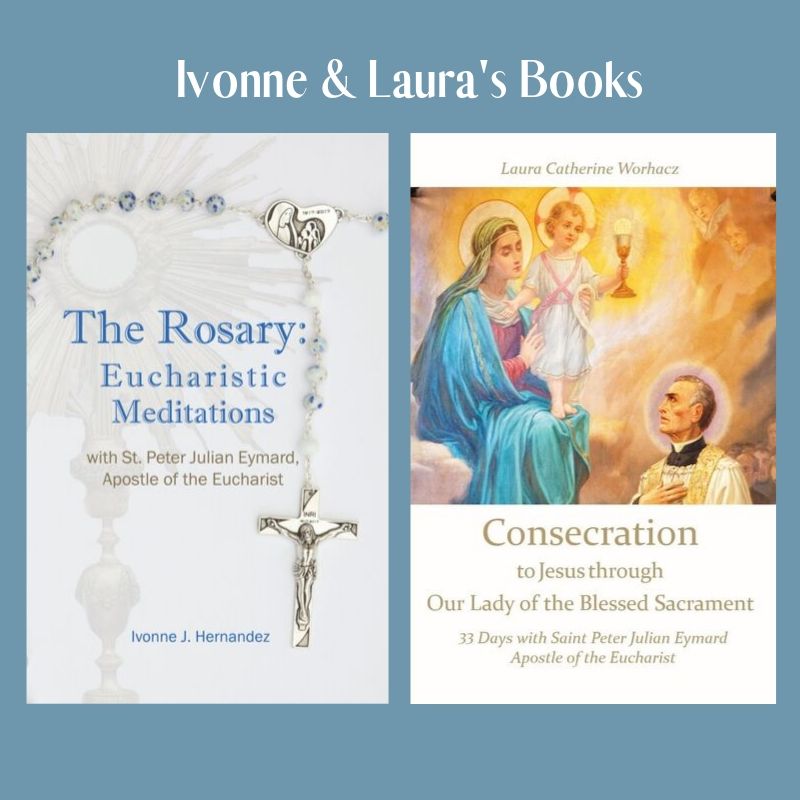ELISHEBA BLOGLaura, Ivonne, and Rick
write about their lives in the Eucharist. |
|
By: Ivonne J. Hernandez “Amen, amen. I say to you, whoever believes in me will do the works that I do and will do greater ones than these, because I am going to the Father. And whatever you ask in my name, I will do, so that the Father may be glorified in the Son. If you ask anything of me in my name, I will do it.” (Jn 14: 11-14)
Can you believe the power in these words from Jesus? Can you imagine doing greater works than those Jesus did while He walked among us? He called Lazarus by name and he came back to life! Can you even imagine doing something like that? Jesus says we can… if we believe. The Acts of the Apostles are full of stories of great miracles. The Apostles’ faith was so strong that “they even carried the sick out into the streets and laid them on cots and mats so that when Peter came by, at least his shadow might fall on one or another of them” (Acts 5:15). We even hear of a boy named Eutychus, who after falling to his death, is restored to life by St. Paul (Acts 20:9-12). The Apostles were witnesses of the Resurrection, and their faith produced great works. But Jesus said, “Have you come to believe because you have seen me? Blessed are those who have not seen and have believed” (Jn 20:29). The dictionary defines the word belief as “an acceptance that a statement is true or that something exists.” The word acceptance is defined as “the action of consenting to receive or undertake something offered”, and to consent is defined as “to give permission for something to happen.” From this we can understand that the gift of faith is one that has to be met with an action. Faith is a give and take. Faith will not take hold until we give our permission, until we say yes, until we freely say, “I do.” The Catechism of the Catholic Church tells us that “faith is both a theological virtue given by God as grace, and an obligation which flows from the first commandment of God.” This obligation is not imposed from the outside, but if flows from the heart, that is, unless we place obstacles in its way: “You shall have no other gods before me.” As we continue to be healed and nourished by God through His action in the Sacraments, we give Him permission to remove, one by one, every lie we have believed, every false god we have placed before Him in our hearts. “Amen, I say to you, if you have faith the size of a mustard seed, you will say to this mountain, ‘Move from here to there,’ and it will move. Nothing will be impossible for you” (Mt 17:20). So, when we wonder why our works do not bear fruit, or why the mountains on our way do not move when we tell them to, let us examine the obligations of our state in life and see which ones we are running away from, or fulfilling begrudgingly, half-heartedly. We will likely find there a lie that we have chosen to believe. A lie that needs to be confronted with truth. “If you remain in my word, you will truly be my disciples, and you will know the truth” (Jn 8:31). Let us look at the tiny piece of bread on the altar and pray, “I do believe, help my unbelief!” (Mk 9:24). And then we wait, and we trust, because “I am confident of this, that the one who began a good work in you will continue to complete it until the day of Christ Jesus” (Phil 1:6).
0 Comments
Your comment will be posted after it is approved.
Leave a Reply. |
Categories
All
FOLLOW US ON SOCIAL MEDIA:
AuthorsWe are Ivonne J. Hernandez, Rick Hernandez and Laura Worhacz, Lay Associates of the Congregation of the Blessed Sacrament, and brothers and sisters in Christ. |
Copyright © 2024 Elisheba House Inc.
Elisheba House is a 501(c)(3) non-profit organization. Federal Tax ID Number 84-1894146
Florida registration for Solicitations of Contributions #CH71652
A COPY OF THE OFFICIAL REGISTRATION AND FINANCIAL INFORMATION MAY BE OBTAINED FROM THE DIVISION OF CONSUMER SERVICES BY CALLING TOLL-FREE (800-435-7352) WITHIN THE STATE. REGISTRATION DOES NOT IMPLY ENDORSEMENT, APPROVAL, OR RECOMMENDATION BY THE STATE.
Florida registration for Solicitations of Contributions #CH71652
A COPY OF THE OFFICIAL REGISTRATION AND FINANCIAL INFORMATION MAY BE OBTAINED FROM THE DIVISION OF CONSUMER SERVICES BY CALLING TOLL-FREE (800-435-7352) WITHIN THE STATE. REGISTRATION DOES NOT IMPLY ENDORSEMENT, APPROVAL, OR RECOMMENDATION BY THE STATE.



 RSS Feed
RSS Feed